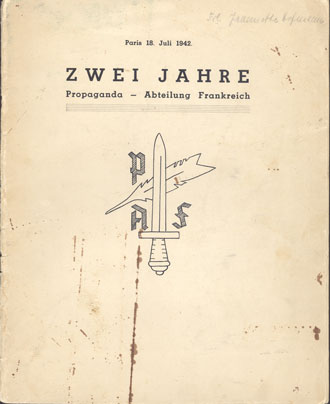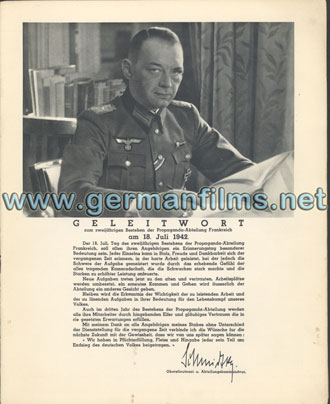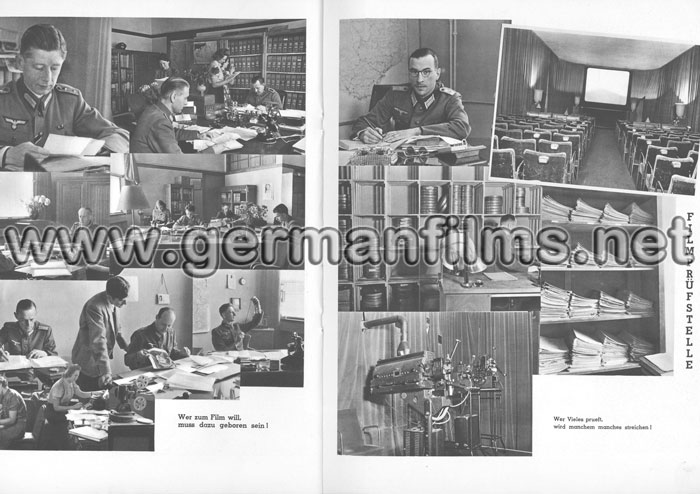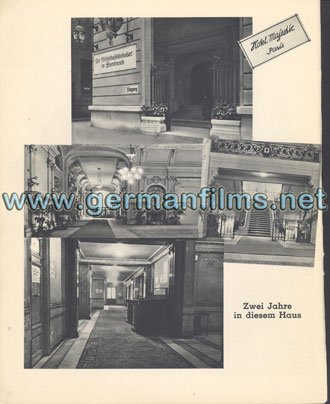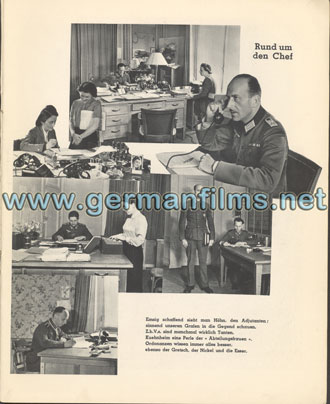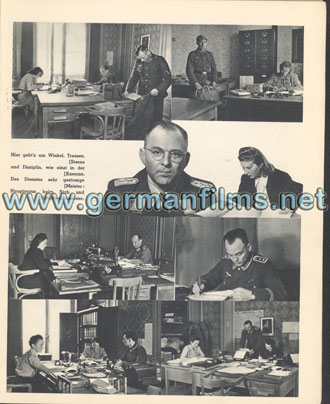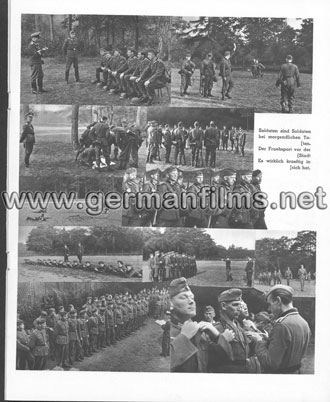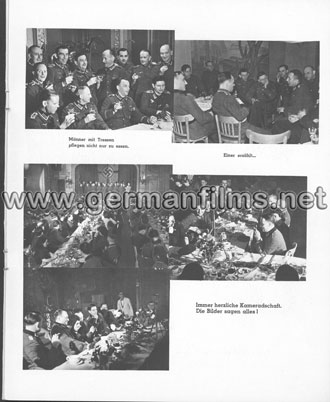- Home
- POSTER GALLERY
- ❗️BOOK & POSTER STORE❗️
- PURCHASE "HJ Quex" film ephemera HQ
- About the Posters
- The William Gillespie Collection
- Our Publishing House
- ❗️GFDN interviews author and collector William Gillespie ❗️
- Our most expensive & inexpensive finds!
- ❗️***NEW!**❗️POSTER OF THE MONTH - Blutzeugen / Raza
- ❗️NEW ❗️Film Posters – Demands on an important means of film advertising. ❗️
- In our Book + Zeitschrift Library
- ❗️ ***NEW!*** Hitler Youth Quex – A Guide for the English–speaking Reader ***NEW!*** ❗️
- ❗️***NEW!*** Table of Contents of our new HJ QUEX book❗️
- ❗️Hitler Youth Quex Guide - early praise! ❗️
- Recent loans from the Collection
- Farewell Horst Claus. (1940–2024 †)
- "Der Deutsche Film" Zeitschrift
- ❗️ ***NEW!***Reichsfilmkammer collection ❗️
- German "Tendency" Films (Tendenzfilme) in the Third Reich
- KARL RITTER
- Karl Ritter original film posers in this Collection
- "Besatzung Dora" ( † 1943)
- "The Making of The Crew of the Dora"
- Karl Ritter at the 1938 Reichsfilmkammer Congress
- INDEX -"Karl Ritter" book, 2nd edition
- Karl Ritter's Legion Condor (1939, unfinished)
- Excerpt from our "Dora" book
- ∆∆∆∆∆ High praise for our DORA book! ∆∆∆∆∆
- TABLE OF CONTENTS – "Legion Condor"
- § § § § § Early Praise for our LEGION CONDOR book! § § § § §
- ❗️"Das Leben geht weiter" and Karl Ritter ❗️
- Dateline: Ufa - April 11, 1945
- Zarah Leander Europe–wide !
- Japan Military Film and Karl Ritter
- Karl Ritter after 1945
- 1935 Film Congress
- Poster Exhibition in Berlin, March 1939
- Potsdam poster exhibition 12 April–25 August 2019
- Leni Riefenstahl's two "Olympia" Films (1938)
- "Ohm Krüger" (1941)
- Emil Jannings
- "Blutendes Deutschland" (1933)
- Hannes Stelzer ( † 1944)
- Klaus Detlef Sierck ( † 1944)
- Film stills
- Reich Film Censorship Offices
- ❗️***NEW!***The Fate of the German Film Industry in May 1945 ❗️
- Film censorship cards
- Film Archives
- Cinema advertising
- School filmstrips
- ❗️UPDATED❗️ Z F O / Ostland Film G-m-b-H
- Z F O / Herbert Jacobi estate
- ZFO / Ostland Film newspaper articles
- ❗️***NEW!*** Roter Nebel / Red Fog / Red Mist (1942/1943, ZFO) ❗️
- ZFO - Der Rückkehrer - The Returnee (1943/1944)
- The D F G production company
- D I F U
- ❗️ ***NEW!*** "Carl Peters" – Special Collection. ❗️
- "Alcazar" (1940, Genina)
- "Der 5. Juni" (1943, banned)
- Herbert Selpin and his "Titanic" (1943)
- Ein Robinson (1940, Fanck)
- "Fronttheater" (1942)
- Veit Harlan's Jud Süß and Fritz Hippler's Der Ewige Jude
- Harlan "Jud Süß" trial 1949
- Werner Krauss & JUD SÜß
- Anti-Semitic Film Posters in the Collection
- "Heimkehr" (1941)
- "Hitlerjunge Quex" (1933)
- ❗️***NEW!*** Hitlerjunge Quex in 111 Greater Berlin Cinemas ❗️
- Jürgen Ohlsen
- "S.A.Mann Brand" (1933)
- "In der roten Hölle" (Edgar Neville, 1939)
- "Helden in Spanien" (1938)
- The Spanish Civil War in Film
- Andrews Engelmann (1901 – 1992)
- Deutsche Wochenschau
- Uƒa Feldpost
- Uƒa Kulturfilm – Informationen
- " Die Tochter des Samurai" (1937, Fanck)
- Ufa 25th Anniversary
- Invitations to world premieres
- ❗️***NEW!*** Continental Films, Paris 1940–1944 ❗️
- Film Censorship in Occupied Paris 1942
- "Der Sieg des Glaubens" (1933)
- Wilhelm Althaus Estate
- Weimar Germany posters
- Ufa and the Ordensburgen
- The Gaufilmstelle in our Collection
- "Zwei Welten" (1940)
- "Capriccio" (1938) –Karl Ritter film album
- Unrealised NS Propaganda Films 1934–1945
- German Film Directors accused of "war crimes"
- Australian––themed NS feature films
- "Der Störenfried" / "The Troublemaker"
- What was new in 2014?
- What was new in 2015?
- What was new in 2016?
- What was new in 2017?
- What was new in 2018?
- What was new in 2019?
- What was new in 2020?
- What was new in 2021?
- What was new in 2022?
- What was new in 2023 ?
- What's new in 2024?
- ❗️***NEW!*** Hitler assassination attempt in Karl Ritter film cut❗️
- BESATZUNG DORA private photos
- Just discovered 1942 article on BESATZUNG DORA
- The Karl Ritter Tetralogy
- Google Analytics 2023
- Our first–ever acquisition!
- ❤️"Some of our favourite things....!"❤️
- ERRATUM for our " Hitler Youth Quex Guide"
- Trending
- Vale †
- Our Wants List / 2024 / Wunschliste
- Pop Quiz
- Unsere KARL RITTER Bücher in Deutschland liefbar!
- WHERE to buy our books right now?
- ✉️Contact
 “History is not about the facts. It is about the context and who is telling the story.” —Prof. Milton Fine.
“History is not about the facts. It is about the context and who is telling the story.” —Prof. Milton Fine.
"Who controls the past controls the future: who controls the present controls the past." –– George Orwell in his novel "1984."
"Whoever doubts the exclusive guilt of Germany for the Second World War destroys the foundation of post–war politics." –– Prof. Theodor Eschenberg, Rector, the University of Tübingen.
"If we have our own why in life, we shall get along with almost any how." – Friedrich Nietzsche
POSTER GALLERY --view
over 500 German film
original posters between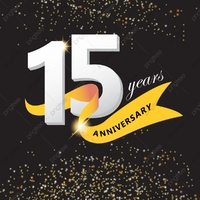
1927–1954 from
Germany and from
many Axis and Neutral countries
across Europe!
Note! Posters in the Poster Gallery are PERMANENT
acquisitions which are NOT FOR SALE!! ONLY the
posters listed in our POSTER STORE are for sale.
(They have a price and order button to use.)
German Film Censorship in Occupied Paris 1942
We have acquired the extremely rare July 1942 self–congratulatory 36 page booklet called "Two Years." This was published by the German Propaganda Division in (Occupied) Paris, heralding two hard years of work in overseeing all press, radio, cinema, theatre, book publishing, advertising, posters and publicity for France. We show here the booklet's cover with the Propaganda Abteilung Frankreich's symbol, the Introduction by the Kommandeure, Oberleutnant Heinz Schmidtke; and the double page spread showing work in the "Filmprüfstelle" or Film Censorship Office.
Lt. Col. Schmidtke was heavily involved with film censorship personally. For instance, he forbad the Wolfgang Lebeneiner film Bismarck in France as the historically–speaking vehemently anti–French stance of Bismarck might be "misinterpreted." He also forbad Leni Riefenstahl's Triumph of the Will in these war years; even though the film had won the prestigious cinematic Gold Medal in Paris in 1936. He encouraged the french language version of Hippler's Der ewige Jude (Le peril Juif); and made sure it was in cinemas in conjunction with the 1942 major anti–Jewish exhibition 'Le Juif et la France."
Regarding Hans Steinhoff's Ohm Krüger film, a French dubbed version was produced, but it was banned in September 1941 on military grounds. But then on 5 October the French dubbed version of the film was premiered at the 'Normandie' cinema in Paris, after being approved by Schimidtke. A bit later the Film Referat in the Propaganda–Abteilung stopped screenings, fearing that the French audiences would find parallels between their fate as an occupied people and that of the Boers under British misrule. After further discussion within the Abteilung, the film was re–approved for further public screenings due to it's obvious propaganda value.
Schmidtke was responsible for organising the famous March 1942 visit to Berlin and Munich by leading French movie stars, such as Danielle Darrieux, Albert Prejean, Suse Delair and others; who were greeted in Berlin by the President of the Reichsfilmkammer, Carl Froelich, had a Ufa Babelsberg studio tour (meeting Karl Ritter, Brigette Horney, Max Kimmich and others in the Ufa studio canteen that day); and later a private meeting with Dr. Goebbels, Baldur von Schirach, actor Heinrich George, and others. The French actors attended the German premiere of the Continental Films production of Premier rendez–vous starring Darrieux. Then they were off to Munich, where they toured the Nazi "Brown House" and saw other famous attractions, before heading back to Paris.
Below, a partial page from the three page film censorship report for the period 8. to 20. January 1942 issued by the Chef der Militärbefehlshaber in Frankreich, Propagandabteilung. That period saw 62 films censored, including feature films, short and cultural films, and French newsreels. Of those titles, some 35 titles were forbidden, including 18 French films, such as the classic La Bête Humaine, and all 17 of the Warner Bros; RKO , and MGM films of America. The words "Not intended for publication" are printed on each page, top right.
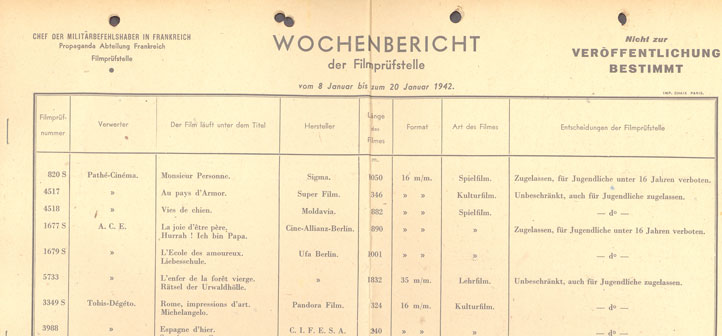
Here is a page showing the location of the Propaganda Division in Paris, at the Hotel Majestic:
The library:
The main administrative offices:
Staff on a typical work day:
The soldiers assigned to the Propaganda Division:
The men at rest and at various gatherings:
Other pages of photographic montages show the areas of Radio, Theatre, the French and German press/newspapers; advertising, publications, photographs/illustrations, and other aspects of the Abteilung's HQ, such as motor pool, canteen and commissary, etc. There are 4 pages showing Paris at day and night, sightseeing/tourist attractions, etc -- one wonder's why such Parisian attractions were included in a brochure meant for internal circulation. Might it not have engendered some envy from other branches of the military and/or government either in France or back in the Reich? Certainly one of our library's most exotic publication holdings.
Further background to the France Propaganda Division:
As was also the case inside the German Reich, the Occupied France propaganda efforts of Nazi Germany were contested by both the von Ribbentrop Foreign Affairs Ministry and that of Dr. Goebbels’. The new German Ambassador to France, Otto Abetz, was also a man whose love of French culture had prompted him to establish back in the 1930’s the Comité France–Allemagne. Abetz, an ally of von Ribbentrop’s, was determined to play a major role in managing the French propaganda efforts, and to relegate the Goebbels Propaganda–Abteilung to that of just a censorship office for the press, film, radio, theatre, book publishing, and advertising. A bit later, Alfred Rosenberg’s ‘Amt Rosenberg,’ founded back in Germany in 1934, was made responsible for the collecting and confiscation and/or export of artworks from French museum holdings and private homes, with support from both Hitler and Göring personally. The overlapping duties, internal politics, and strong clashing personalities of these various organisations made smooth control of Occupied France culture both difficult and inefficient. Ultimately such competing institutions undermined the unity of such efforts.
In our Zwei Jahre publication of the Propaganda–Abteilung (from July 1942) the Kommandeur of the Department, a Lt. Col. Heinz Schmidtke, has a Foreword in which he praises the staff for their hard efforts since the establishment of the HQ and branches back in July 1940. He ends his comments with: We have each contributed to the final victory of the German people in the fulfillment of duty, diligence and dedication.
Extracts from the speech he gave the previous year, in July 1941, at the ceremony marking the first anniversary of the Department, are also published in Zwei Jahre. In those remarks, he recalled that he had arrived hurriedly in the just occupied Paris with two other men assigned to create and man a new Propaganda–Abteilung from scratch; and the hard work that had been required, and many long hours needed to be successful at that time.
There are a handful of academic works devoted to covering the years of German occupation in France 1940–1944, and one of them cites that by the time of our publication, the Abteilung had 1200 employees and 50 branches scattered all over Occupied France.
The Department was divided into six areas, or sections: Press, Cinema, Radio, Culture (which included then fine arts, music, theatre, cabaret) Literature, and what was referred to as ‘Active Propaganda.’ There were 200 experts from the careers in journalism or criticism who were called ‘Sonderführer’ or ‘special leaders.’ This was a rank provided to civilians without military training who were brought into the Wehrmacht to perform special duties across all needed fields from medicine to transport; and who had to be given a rank; in order to function properly inside the military.
Lt. Col. Schmidtke, then, was a powerful man in his own right, reporting directly to Dr. Goebbels in Berlin; but caught up in the intrigue and frustrations of the competing power bases from the German Foreign Office, the Abetz Embassy, and from Amt Rosenberg. It has been pointed out in academic books on this subject that it was only due to the despondency of the defeated French, the vacillation of the Vichy Government, and the willingness of many French intellectuals and artists to collaborate with National Socialism that allowed German propaganda to be as effective as it actually was.
Who was Heinz Schmidtke? We do not know much about him, but he had been an infantry man, from Prussia, who had earlier served as Liaison Officer with the Domestic Press Office of the Ministry of Propaganda and Public Enlightenment; then as it’s Speaker of the daily press conference; and then as Chief of the Propaganda–Abteilung, Frankreich from 1940-1944. He must have been sent to the Eastern Front in late 1944, as the last we know of him was that he was listed as a POW in the Soviet Union in 1945.
What did Dr. Goebbels think of him as Kommandeur of the Department? We know what he thought, thanks to the publication of the Goebbels Diaries. For example:
17 July 1940 – (Schmidtke farewelled by Goebbels to take up the Propaganda–Abteilung France.)
8 August – Schmidtke reports to Goebbels at the latter’s country estate, Lanke, north of Berlin ; with many questions about how to handle radio, press, and film.
27 August – ‘The Foreign Ministry makes many problems for Schmidtke. But he’ll soon have a new decree from the Führer.”
28 August – The Foreign Ministry passed on the Führer decree to Abetz and on to Schmidtke, who is “happy.”
4 September – “Schmidtke report for Paris. All good.”
16 September – “Thousands of new problems surface. The returning French intellectuals sour the whole mood. All of them hope for an English victory. We must put in place counter–propaganda.”
19 September – “I order a big propaganda effort, strongly anti–English and against the stinking intellectuals.”
11 October – “Schmidtke reports on France. Our campaign is beginning to work and all are enthusiastic about it.”
20 October – (Dr. Goebbels visits Paris and during this time meets with Schmidtke.)
22 November – “Fight between Schmidtke and Wächter (a senior Goebbels staffer back in Berlin). I once again instill peace.”
7 January 1940 – “New re–organization at the top of the Reich Propaganda leadership. I hand over the major work to Wächter. He will bring momentum to the place. In Paris I will eventually place Knothe [Wilhelm Knothe, former diplomat but also a right–hand man to Goebbels in the Propaganda Ministry as an expert in film and other performing arts, mistrusted by Alfred Greven who ran the Continental Films concern in wartime France. Knothe later was made in charge of the French “Wochenschau” newsreel division, France Actualités.] and instead of Grothe, our Paltzo [Joachim Paltzo, hard core Nazi propagandist, who in fact was only sent briefly to Paris, and then was made leader of the Propaganda organisation in the Occupied Ukraine from 1942 to 1944, when he was killed in battle.] They would be useful support for Schmidtke, who is not overly blessed with intellect. But he has an integral character.”
28 January – “New personnel in Paris. Schmidtke does not deliver what he promises. I have to provide a genuine Nazi at his side. Even in the Propaganda leadership the personnel are unclear.”
11 February – “We have to provide at Schmidtke’s side Nazis, or the situation is tough. He is reluctant, but that does not help him. He must. “
9 April – “Things in France somewhat better. The propaganda from our Embassy has penetrated (through to) the collaborators. “
13 April – “Paris has become such a really bad stage. The biggest loser here is Major Schmidtke – a perfect blank!”
23 May – “Schmidtke reports on the situation in France. Mood has improved a lot. We are now approaching cultural events again…. He realises that I do not trust him anymore. I have had it up to here with him, but then he comes good.”
The Goebbels diary entry of 23 May 1941 was last one mentioning Heinz Schmidtke at all. As is seen by the earlier entries, from one week to the next Goebbels' opinion of the status of French propaganda see–sawed back and forth and he changed his mind overnight at times. Heinz Schmidtke did manage to stay Head of the Propaganda–Abteilung through to 1944, when German troops evacuated Paris. So he must have done a good enough job often enough to keep Goebbels from sacking him during those long four years of work there.
We are indebted to the Kathrin Engel book Deutsche Kulturpolitik im besetzten Paris 1940–1944: Film und Theater; Oldenburg Verlag, 2003, particularly; and to the Saur Verlag volumes of the Tagebücher von Joseph Goebbels (1924–1945); both of which editions are found in our library.
